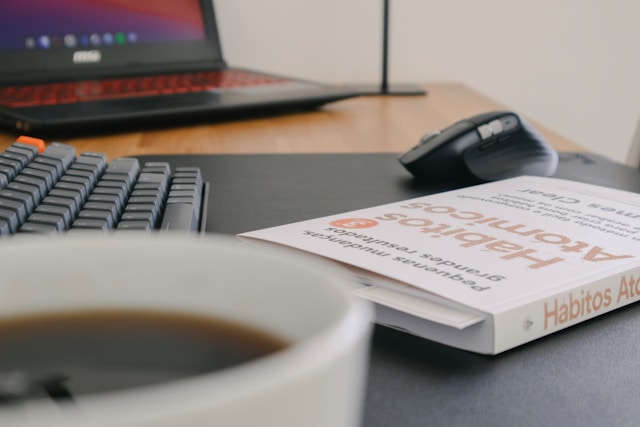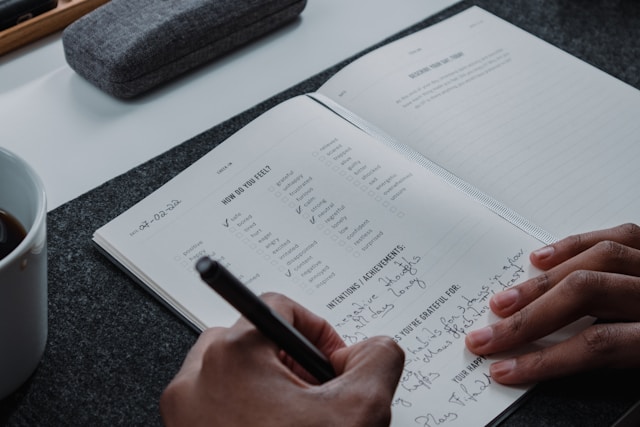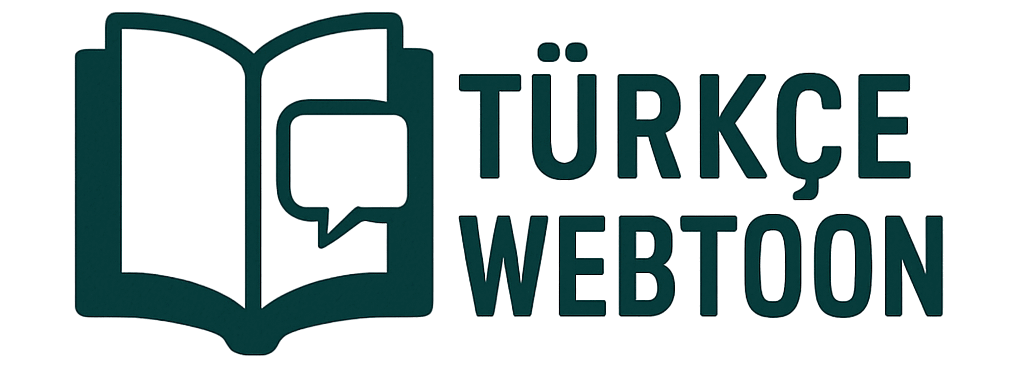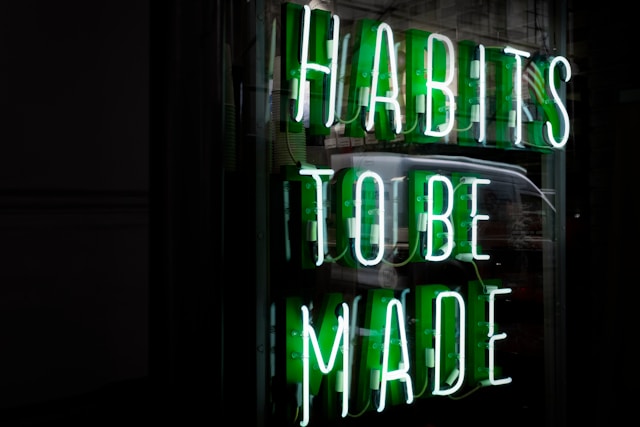Ever wake up feeling like you’ve already run a marathon, even before your first cup of coffee? Or find yourself hitting that afternoon slump so hard you can practically feel your brain turning to jelly? You’re not alone! Many of us often feel perpetually tired, dragging ourselves through the day, wondering where all our pep and vitality went. It’s frustrating, right? You might be getting enough sleep (or so you think!), eating somewhat healthily, and still feel utterly drained.
The truth is, sometimes the biggest energy culprits aren’t obvious. They’re those subtle, often unconscious habits we’ve woven into our daily routines – things that seem harmless, or even helpful, but are actually secretly draining your energy. It’s like having a tiny, invisible leak in your energy tank that you don’t even know about! Whether you’re a busy parent, a driven professional, or someone just trying to keep up with life’s demands, low energy can impact everything: your mood, your productivity, your relationships, and your overall joy.
But don’t despair! This article is your friendly guide to uncovering these hidden energy zappers. We’re going to dive into the top 10 everyday habits that secretly drain your energy, explain why they leave you feeling flat, and, most importantly, give you practical, easy-to-implement tips to fix them. By the time you’re done reading, you’ll be armed with the knowledge to plug those leaks and reclaim the vibrant, energetic self you know you can be. Ready to boost your bounce? Let’s uncover those energy culprits!

The Silent Saboteurs: Habits That Steal Your Spark
Let’s get down to business. These are the top contenders, the sneaky habits that might be robbing you of your precious energy without you even realizing it.
1. Chronic Dehydration: The Thirst Trap
You might not feel parched, but a significant chunk of the population lives in a state of mild, chronic dehydration. And guess what? Even slight dehydration can hit your energy levels hard.
- Why it Drains You: Water is essential for almost every bodily function, from transporting nutrients to regulating body temperature. When you’re not adequately hydrated, your blood volume drops, making your heart work harder to pump oxygenated blood to your muscles and brain. This extra effort leaves you feeling sluggish and fatigued.
- The Sneaky Part: Thirst isn’t always the first sign of dehydration. Often, fatigue, headaches, or even difficulty concentrating can be the initial signals.
- Solution: Drink up! Keep a water bottle handy and sip throughout the day. Aim for roughly eight 8-ounce glasses (around 2 liters) a day, but listen to your body and adjust based on activity level and climate. Add a slice of lemon or cucumber for a refreshing twist if plain water feels boring.
2. Skipping Breakfast (or Eating the Wrong One): Fueling Fails
The “most important meal of the day” adage exists for a reason. Skipping it, or opting for a sugary, nutrient-devoid breakfast, sets you up for an energy crash.
- Why it Drains You: After hours of sleep, your body needs fuel to kickstart your metabolism and brain function. Skipping breakfast is like trying to drive a car on an empty tank. A sugary breakfast (think donuts or sugary cereals) gives you a quick spike, followed by an inevitable crash as your blood sugar plummets, leaving you tired and craving more sugar.
- The Sneaky Part: You might feel “fine” initially, but the energy dip usually hits mid-morning, making you reach for another coffee or a sugary snack, perpetuating the cycle.
- Solution: Prioritize a balanced breakfast rich in protein, healthy fats, and complex carbohydrates. Think oatmeal with berries and nuts, eggs with whole-grain toast and avocado, or Greek yogurt with fruit. This provides sustained energy release.
3. Too Much Caffeine (or the Wrong Timing): The Jittery Rollercoaster
Ah, coffee, our beloved morning ritual! While a moderate amount can boost focus, relying too heavily on caffeine, especially late in the day, is a classic energy drainer.
- Why it Drains You: Caffeine blocks adenosine, a chemical that makes you feel sleepy. When caffeine wears off, all that accumulated adenosine hits you, leading to a sudden “caffeine crash.” Drinking caffeine too close to bedtime disrupts your sleep quality, even if you think you’re sleeping fine, preventing deep, restorative rest.
- The Sneaky Part: You become dependent on it, needing more and more just to feel “normal.” You might not realize it’s impacting your sleep until you cut back.
- Solution: Practice caffeine moderation. Stick to 1-2 cups (200-300mg) daily, and cut off caffeine intake at least 6-8 hours before bed. If you need an afternoon pick-me-up, try a brisk walk or a glass of water instead.
4. Over-Scheduling and Saying “Yes” Too Often: The Burnout Express
We live in a culture that often glorifies being busy. But constantly filling your calendar to the brim, both professionally and socially, is a direct path to exhaustion.
- Why it Drains You: Every commitment, every favor, every social event, takes mental and emotional energy. When you have no downtime, your brain doesn’t get a chance to rest and recharge. This leads to decision fatigue, mental fog, and ultimately, burnout. You’re constantly running on empty.
- The Sneaky Part: You might feel guilty saying “no,” or worry about missing out. But saying “yes” to everything means saying “no” to your own well-being.
- Solution: Learn the art of strategic “no.” Prioritize your commitments and protect your downtime. Schedule white space in your calendar – time for rest, hobbies, or simply doing nothing. Remember, saying “no” to something good can mean saying “yes” to something great for your energy.
5. Perfectionism: The Endless Pursuit of Exhaustion
Striving for excellence is great, but chasing flawless perfection in every task is a surefire way to zap your energy.
- Why it Drains You: Perfectionism often leads to overthinking, procrastination, and excessive re-working. You spend disproportionate amounts of time on tasks that don’t yield significant returns, and the fear of not being “perfect” can be paralyzing, leading to mental and emotional exhaustion.
- The Sneaky Part: It feels productive because you’re working so hard, but it’s often inefficient and leads to anxiety and stress.
- Solution: Embrace the concept of “good enough.” Understand that progress, not perfection, is the goal. Set realistic standards, delegate when possible, and learn to identify when a task is “complete enough” to move on. Focus your energy on tasks where perfection genuinely matters.
More Energy Leaks: Unconscious Habits You Need to Ditch
The energy drainers don’t stop there! These next few habits might seem innocuous, but they chip away at your vitality over time.
6. Ignoring Your Clutter: The Mental Weight of Mess
That pile of clothes, the overflowing inbox, the disorganized desk – clutter isn’t just unsightly; it’s a silent energy vampire.
- Why it Drains You: Visual clutter creates mental clutter. Your brain is constantly (and often unconsciously) processing all those disorganized items, which takes up cognitive energy. It makes it harder to focus, adds to feelings of overwhelm, and can even increase stress levels. A cluttered environment leads to a cluttered mind, and a cluttered mind is a tired mind.
- The Sneaky Part: You might be so used to the mess that you don’t even “see” it anymore, yet its impact on your subconscious remains.
- Solution: Declutter regularly. Start small: tackle one drawer, one desk surface, or spend 15 minutes a day tidying. A clean, organized space fosters a clear, calm mind, freeing up mental energy. Marie Kondo was onto something!
7. Mindless Scrolling on Social Media: The Digital Drain
We’ve all been there – picking up our phone for “just a minute” and losing an hour to the endless scroll. While social media connects us, it can also leave us feeling oddly drained.
- Why it Drains You: Constant comparison with others’ highlight reels can trigger feelings of inadequacy, envy, and anxiety. The sheer volume of information can lead to mental overload, and the passive consumption can leave you feeling unfulfilled rather than recharged. It often replaces truly restorative activities.
- The Sneaky Part: It feels like a break, a way to relax, but it can actually increase mental fatigue and prevent true rest.
- Solution: Mindful social media use. Set time limits for apps, unfollow accounts that make you feel bad, and prioritize genuine interactions. Try scheduling specific times for social media rather than instinctively reaching for your phone. Use it as a tool, not a default.
8. Holding Onto Grudges and Negative Emotions: The Emotional Anchor
Emotional baggage is surprisingly heavy. Holding onto anger, resentment, or bitterness is a significant drain on your psychological and physical energy.
- Why it Drains You: Ruminating on negative past events or perceived injustices keeps your body in a state of stress. This constant emotional tension expends enormous amounts of mental energy that could be used for positive, productive activities. It’s like dragging a heavy anchor behind you all day.
- The Sneaky Part: You might feel justified in your anger, or believe that holding onto it protects you. But in reality, it often hurts you more than anyone else.
- Solution: Practice forgiveness (for yourself and others). This doesn’t mean condoning harmful behavior, but releasing yourself from the emotional burden. Journaling, talking to a trusted friend, or seeking professional support can help you process and let go of these energy-sapping emotions.
9. Not Moving Enough (Sedentary Lifestyle): The Couch Potato Effect
It seems counterintuitive, but sitting still for too long can make you feel more tired, not less.
- Why it Drains You: Our bodies are designed for movement. A sedentary lifestyle slows down circulation, reduces blood flow to the brain, and can lead to stiff muscles and joints. This lack of physical activity can also negatively impact sleep quality and mood, compounding fatigue.
- The Sneaky Part: When you’re tired, the last thing you want to do is move. But ironically, a little movement can give you an energy boost.
- Solution: Incorporate movement breaks. Even if you have a desk job, stand up and stretch every hour. Take a brisk walk during your lunch break. Find an enjoyable form of exercise, even if it’s just 20-30 minutes of dancing or walking a few times a week. Movement energizes!
10. Neglecting Your Sleep Environment & Routine: The Restless Rest
You might be getting eight hours, but is it quality sleep? A poor sleep environment and inconsistent routine are huge energy thieves.
- Why it Drains You: Sleep isn’t just about closing your eyes; it’s about restorative cycles that repair your body and consolidate memories. Light, noise, temperature, and an irregular sleep schedule can disrupt these cycles, preventing deep, rejuvenating sleep. You wake up feeling unrested, even after a full night.
- The Sneaky Part: You might think you can “catch up” on sleep on the weekends, but chronic sleep deprivation can’t be fully offset, and irregular sleep throws your body’s natural clock out of whack.
- Solution: Prioritize sleep hygiene. Create a cool, dark, quiet bedroom. Establish a consistent bedtime and wake-up time, even on weekends. Avoid screens before bed. Develop a relaxing pre-sleep routine like reading, stretching, or a warm bath. Good sleep is your ultimate energy source.

Conclusion: Reclaiming Your Energy, One Habit at a Time
Wow, we’ve unpacked quite a few hidden culprits that might be secretly draining your energy! From the subtle effects of dehydration and poor breakfast choices to the heavier tolls of over-scheduling, perfectionism, and clinging to negativity, it’s clear that our everyday habits have a profound impact on our vitality. Even seemingly harmless activities like mindless scrolling or ignoring clutter can chip away at our precious energy reserves.
But here’s the really exciting part: recognizing these energy drains is the first, most powerful step towards reclaiming your zest for life! You don’t need to overhaul your entire life overnight. Even small, consistent changes in these areas can create a magnificent ripple effect, gradually bringing back that sparkle, focus, and drive you’ve been missing.
Imagine waking up feeling genuinely refreshed, tackling your day with enthusiasm, and still having energy left for the things and people you love. That’s not just a dream; it’s an achievable reality when you start being mindful of these habits. Your energy is your most valuable resource – protect it fiercely! Now that you know the secrets, the power to boost your energy is firmly in your hands. Which habit will you tackle first to start feeling more vibrant?
Frequently Asked Questions About Energy Draining Habits
Q: Why do I feel tired even after getting enough sleep?
A: Feeling tired despite adequate sleep (7-9 hours for most adults) often points to issues with sleep quality, not just quantity. Factors like inconsistent sleep schedules, poor sleep environment (too much light/noise), late-night screen time (blue light exposure), or underlying health issues (like sleep apnea or nutritional deficiencies) can prevent you from getting truly restorative sleep. Additionally, some of the energy-draining habits discussed in this article, like chronic stress or poor diet, can make you feel tired even if your body is technically rested.
Q: Can stress really drain my physical energy?
A: Absolutely, stress is a massive energy drainer. When you’re stressed, your body enters a “fight or flight” mode, releasing hormones like cortisol and adrenaline. While this is helpful in short bursts, chronic stress keeps your body in a heightened state of alert, consuming enormous amounts of physical and mental energy. It can lead to muscle tension, headaches, digestive issues, and disrupted sleep, all of which contribute to profound fatigue. Managing stress is crucial for maintaining energy levels.
Q: How long does it take to see an energy boost after changing these habits?
A: The time it takes to see an energy boost varies depending on the habit and your individual response. For something like hydration, you might feel a difference within a day or two. Improving sleep hygiene can show noticeable results within a week or two. For more ingrained habits like reducing over-scheduling or perfectionism, it might take several weeks to feel a significant shift as you retrain your brain and body. Consistency is key, and even small, daily changes accumulate over time.
Q: Are there any specific foods that can boost my energy?
A: Yes! Focus on whole, unprocessed foods that provide sustained energy. Examples include complex carbohydrates (oatmeal, brown rice, whole-grain bread), lean proteins (chicken, fish, beans, lentils), healthy fats (avocado, nuts, seeds), and plenty of fruits and vegetables (rich in vitamins and minerals). Avoid highly processed foods, excessive sugar, and refined carbohydrates, which can lead to quick energy spikes followed by crashes.
Q: How can I tell if my low energy is due to habits or a medical condition?
A: While many instances of low energy are tied to lifestyle habits, it’s crucial to rule out underlying medical conditions. If you’ve tried addressing common energy-draining habits and still experience persistent, unexplained fatigue, it’s highly recommended to consult a doctor. Conditions such as anemia, thyroid disorders, vitamin deficiencies (e.g., Vitamin D, B12), sleep disorders, chronic fatigue syndrome, or depression can all manifest as low energy and require professional diagnosis and treatment.

